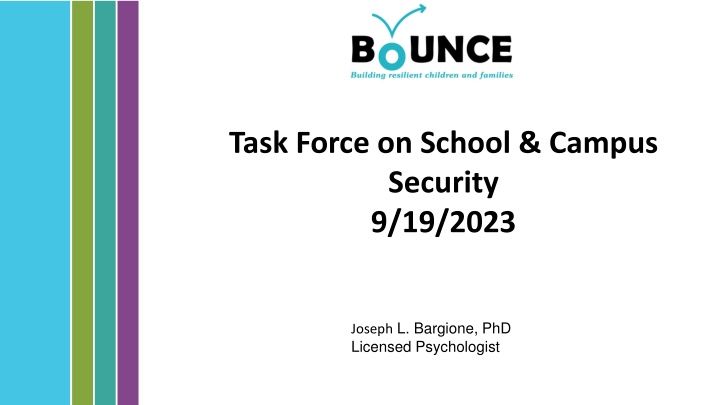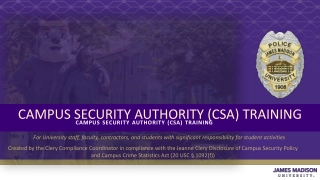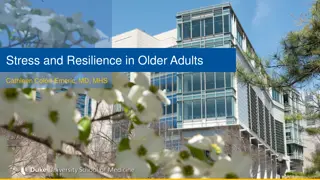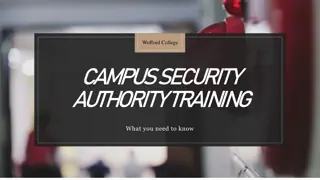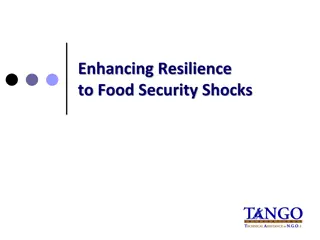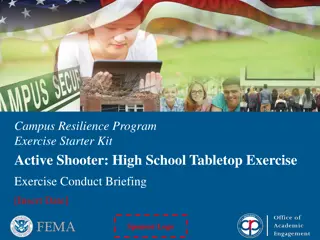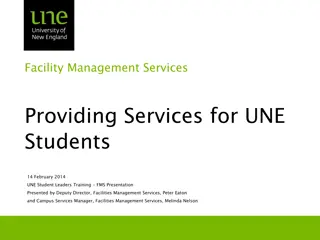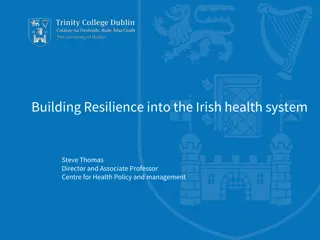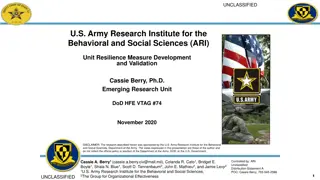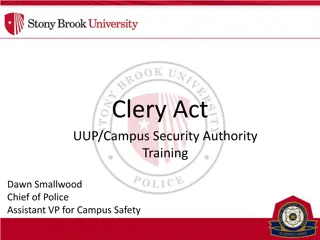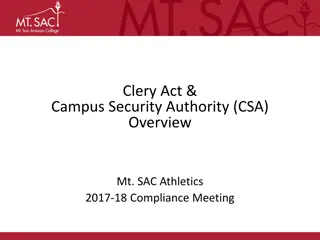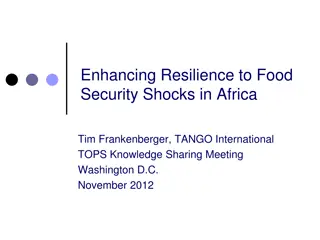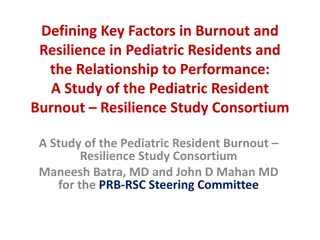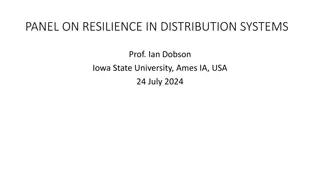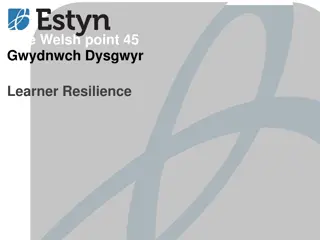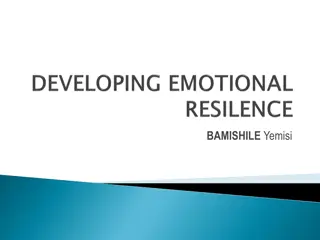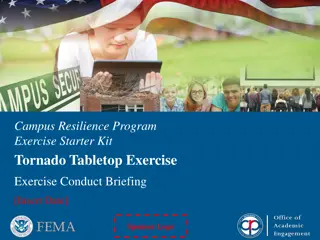Enhancing Resilience for School and Campus Security
Task Force on School & Campus Security, led by Joseph L. Bargione, PhD, focuses on building resilience in children, adults, and families by addressing adverse childhood experiences (ACEs). The initiative involves education, training, evaluation services, advocacy for trauma-informed policies, and partnerships with various organizations to support resilience-building efforts.
Download Presentation

Please find below an Image/Link to download the presentation.
The content on the website is provided AS IS for your information and personal use only. It may not be sold, licensed, or shared on other websites without obtaining consent from the author.If you encounter any issues during the download, it is possible that the publisher has removed the file from their server.
You are allowed to download the files provided on this website for personal or commercial use, subject to the condition that they are used lawfully. All files are the property of their respective owners.
The content on the website is provided AS IS for your information and personal use only. It may not be sold, licensed, or shared on other websites without obtaining consent from the author.
E N D
Presentation Transcript
Task Force on School & Campus Security 9/19/2023 Joseph L. Bargione, PhD Licensed Psychologist
What does: Bounce builds the resiliency of children, adults, and families by improving knowledge about the impact of adverse childhood experiences (ACEs) and the skills to help people bounce back from adversity. This includes: Education and training Providing evaluation services to measure the impact of healing-centered practices Advocating for policies that support people who have experienced trauma, help prevent trauma, and build resiliency
Bounce Partnerships School Districts Educational Cooperatives HeadStart Programs Out of School Providers Health Departments Hospitals Residential Programs Manager Care Organizations
Our Journey Supporting Students Where we started Where we are Where we are going
Where We Started Two students were killed on campus Local, state, and federal resources were activated to support students, staff, families and community General Assembly established the School Safety Work Group Chaired by Senator Wise & Representative Carney Led to the passage of the School Safety and Resiliency Act (2019, 2020)
Where We Are School Safety and Resiliency Act (2019, 2020) Psychological Safety District Trauma-Informed Education Plans (DTIEPs) Suicide Prevention Program Additional mental health specialists Recognition of how trauma and adverse childhood experiences (ACEs) impact students For additional information https://education.ky.gov/ Physical Safety Established State Security Marshall School Resource Officers School Security Risk Assessments Handle with Care For additional information https://kycss.org/
Brief Review of Concepts Adverse Childhood Experiences (ACEs) Are potentially traumatic events that occur in childhood. ACEs can include violence, abuse, and growing up in a family with mental health or substance use problems. (CDC) Resilience The combination of protective factors that enable people to adapt in the face of serious hardship, and is essential to ensuring that children who experience adversity can still become healthy, productive citizens. (Harvard Center on the Developing Child)
Building Resiliency In Students Using Positive Childhood Experiences Framework Positive Childhood Experience Can help protect against the poor health outcomes associated with ACEs 4 Components Relationships within families and others through interpersonal activities Safe, stable, and equitable environments for living, playing and learning at home and in school Social and civic engagement to develop a sense of belonging and connectedness Emotional growth through playing and interreacting with peers for self-awareness and self-regulations Source: Healthy Outcomes from Positive Experiences (HOPE)
Where We Need To Go Update District Trauma-Informed Education Plans Update Suicide Prevention Programs Update existing structures and programs to support work (e.g., MTSS) This Photo by Unknown Author is licensed under CC BY Note: Input for recommendations were from leaders for school psychologists, school counselors, school social workers, mental health experts, KY Center for School Safety and KY School Safety Marshall
District Trauma-Informed Educational Plans Need for accountability and continuous monitoring Plans need to be at school and district levels Data on well being of students should be collected (e.g., KIP, YRBS) and used to develop strategies Potential impact of SB-150 on collecting data Scheduled reviews within districts and by an outside agency (e.g., KDE, CTAC, Educational Cooperatives) Monitoring results should be reviewed at the school, district and state level so effective strategies can be shared, and support provided to schools or districts that need it
District Trauma-Informed Educational Plans Focus should also include building resiliency in students Use three tiered system of support similar to what schools use when teaching reading, writing and math Use evidenced based strategies/services at each level Tier 1 needs to include prevention component Consider using similar process for Comprehensive District Improvement Plans (CDIPs) and Comprehensive School Improvement Plans (SCIPs)
Suicide Prevention Programs Suicide prevention programs that are presented to students and staff should be evidence-based. Programs presented to staff should include risk factors, warning signs, protective factors, response procedures, referrals, postvention, and resources regarding youth suicide prevention. After the initial lesson occurs before September 15, a follow up lesson should occur prior to January 15th to reinforce prior learning. Schools make a good faith effort to reach students who are absent on the day of the instruction All certified and classified staff who have direct contact with students in grades four through twelve should be trained on suicide prevention. This adds any staff who have contact with students in fourth and fifth grades. See position paper from the school psychologists, school counselors, and school social workers associations for additional recommendations
